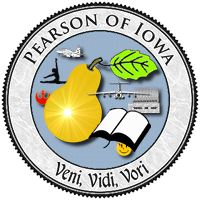Journal, lists, links, philosophy, but mostly just good stuff I have found on the web

About Me
Monday, March 04, 2013
Campbell's 'Hero's Journey' Monomyth
From ChangingMinds.org. See that for numbered links.
Disciplines > Storytelling > Plots > Campbell's 'Hero's Journey' Monomyth
Separation | Initiation | Return | See also
Joseph Campbell defined a classic sequence of actions that are found in many stories. It is also known as the Monomyth, a term Campbell coined from James Joyce's Finnigan's Wake.
I. Separation / departure
The first section of the story is about the separation of the hero from the normal world. Separation has symbolic echo of infant transition away from the mother and so has a scary feel to it.
I.1 The Call to Adventure
I.2 Refusal of the Call
Acceptance of the Call
I.3 Supernatural Aid
I.4 Crossing of the First Threshold
I.5 Entering the Belly of the Whale
II. Initiation
In the main part of the story the hero is initiated into true heroic stature by various trials and rites. Through daring and battle, the true character emerges.
II.1 Road of Trials
II.2 The Meeting with the Goddess
II.3 Woman as Temptress
II.4 Atonement with the Father
II.5 Apotheosis
II.6 The Ultimate Boon
III. Return
After initiation the hero can cleansed and return in triumph to deserved recognition, although this in itself may not be without its trials and tribulations.
III.1 Refusal of the Return
III.2 Magic Flight
III.3 Rescue From Without
III.4 Crossing of the Return Threshold
III.5 Master of the Two Worlds
III.6 Freedom to Live
As with other frameworks, Campbell receives his fair share of criticism, typically that not all stories are like this. His much-admired and much-copied pattern has also been criticized as leading to 'safe' movie-making, in which writers use his structure as a template, thus leading to 'boring' repeats, albeit in different clothes. The same has been said about Shakespeare, of course, as well as other classic writers.
See also
Propp's Morphology of the Folk Tale, Vogler's story structure
Campbell, J. (1949). The Hero With a Thousand Faces, New York: Bollingen
Subscribe to:
Post Comments (Atom)

No comments:
Post a Comment